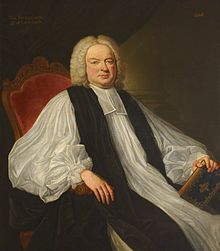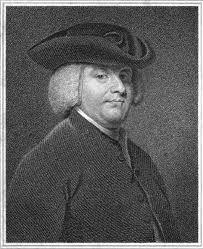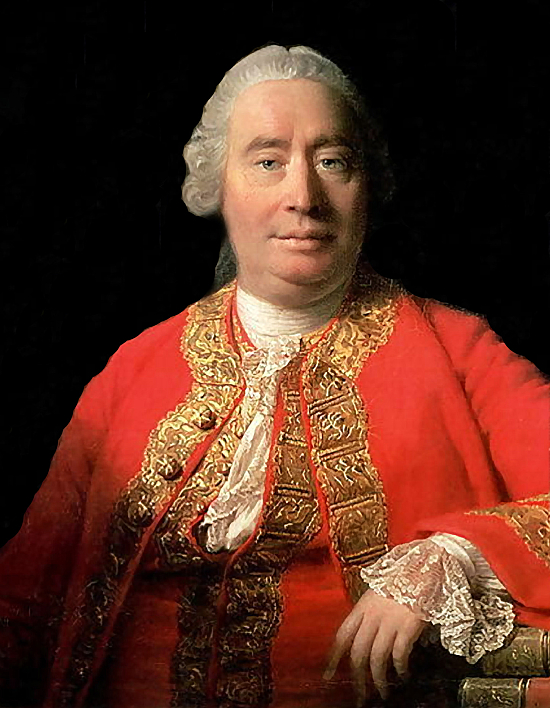INTRODUCTION
In our last blog, we said that one of the most significant obstacles for some people to overcome is the fact that Christianity is a religion of miracles. The idea of miracles and the supernatural are a little hard to swallow for some people. Why is that?
The Enlightenment and Newtonian physics caused a reexamination of views that had been held for centuries. The fields of philosophy and theology were radically altered as well. Due to laws of physics developed by Isaac Newton in 1687, the universe was perceived as a kind of deterministic machine.
One subject that drew considerable interest during the Enlightenment was the idea of miracles and how they should be viewed in this new age of reason and science. As a result, throughout the 1800s and well into the 1900s, miracles were simply ignored as fiction in major universities. So we want to go back prior to the 1800s and find out how this happened.
In our last blog we said that we would define a miracle as “a rare act of God that interrupts the normal course of events.” We say this despite the fact that atheists have a very prejudicial definition of “miracle” as being “a violation of a law of nature.” We’ll talk about this more in a moment, but it might help if we could say that a “miracle” is an event or phenomenon that “lies outside the causal capacity of nature,” which is better than describing it as a violation of natural law.
We also said that it’s crucial to understand such phenomena in light of their religious and historical context. Miracles cannot be understood without the complete background information that tells us why such things might occur.
HUME’S ANTI-MIRACLE VIEW
In 1748, Scottish atheist philosopher David Hume published his Enquiry Concerning Human Understanding, which contained an essay in Section X entitled “Of Miracles,” that he wanted to serve as “an everlasting check to all kinds of superstitious delusion.”
Spinoza had attacked the possible occurrence of a miracle, whereas Hume attacked the idea that a miracle could be clearly identified. Spinoza’s argument against miracles has largely been abandoned. Hume’s subtler argument has served as a bedrock upon which much of academia places its trust today. However, as we shall see it is logically flawed.
Hume started by discussing how we weigh the evidence of two empirical claims. Like Spinoza, his standard for evidence of God’s existence was 100% certainty, what he called a “full proof.” Nothing less would do. Of course, we explained earlier why we think this burden of proof that he places on Christians is inordinately restrictive.
In any discussion of God’s existence, we are examining probabilities. “Certainty” would be too high a standard of proof to place on atheists or Christians. This standard for proof is not used in debating the issue of God’s existence today, although a handful of people will occasionally get carried away and demand such a standard.
In the first half of his essay, Of Miracles, Hume spoke theoretically or “in principle,” granting a few concessions to his opponents for the sake of argument. In the second half, he argued on the basis of what he thought was actually the case in point of fact.
1. Hume’s “In Principle” Argument
You could call this Hume’s “even if” argument because he makes a concession to his opponents for the sake of argument. He was saying “Let’s assume for a moment that it’s possible to provide a ‘full proof’ of a miracle.” Hume’s “in principle” argument stated that, even if the evidence for a miracle allegedly constituted a “full proof” (100% certainty), the “universal experience” of all mankind has been to witness the unchangeable course of nature and laws of nature, which also constitute a “full proof” (100% certainty).
Hume said it would be extremely difficult, or even impossible, to identify something as a miracle in light of that “full proof” for immutability. When we are weighing the evidence for a miraculous explanation against a natural explanation, in principle, the scales will never tip in favor of the miracle. They will at least remain in balance or tip toward naturalism. So a miracle claim cannot be upheld with any degree of confidence. As a result, the wise man would do well to never believe in miracles. That is Hume’s “in principle” argument in a nutshell.
To state his ultimate thesis very simply, Hume asserted that the uniform experience of humanity supported the laws of nature rather than miracles.
Regarding the specific miracle of Jesus’ resurrection, David Hume drew an analogy to the Queen of England. He asked us to imagine that the Queen publicly died, was buried and her successor installed, but then a month later she reappeared and resumed the throne to rule England for three more years.
Hume said that in such a case, he would go to great lengths to accept even the most extraordinary theory for the Queen’s pretended death and burial before he would ever admit such a striking violation of the laws of nature. Even if the evidence for these events was a “full proof” (a 100% certainty), Hume said he would not believe such an assertion. Speaking generally, Hume said this is how any intelligent person should view even a “full proof” for any miracle.
However, we would say that Hume’s analogy about the Queen of England lacks the religious and historical context present in Jesus’ resurrection narrative. As a rare act of God, a miracle cannot be understood apart from such context.
David Hume gave four reasons that he thought explained why the evidence for miracles is so weak:
1. Honest, educated men of social standing have never attested to miracles in any significant numbers because it would diminish their credibility, they would be identified as liars and lose their social standing.
2. It is the nature of common people that they are too easily led into absurd stories about miracles and the supernatural, and we obviously need to resist this proclivity.
3. The only time you hear of “miracles” is among backward, ignorant cultures and people.
4. Miracles occur in all religions and religions contain so many contradictory doctrines that these miracles of various religions cancel each other out because the miracles they each propound are unable to validate a particular faith.
2. Hume’s “In Fact” Argument
In this argument, Hume made no concessions. He no longer allowed for the possibility of a 100% “full proof” for a miracle. Hume’s “in fact” argument said that in actual practice, the evidence for a miracle never really constitutes a “full proof” (100% certainty), and not even a probability. Thus, the evidence for the immutable laws of nature is so strong that, that in actual fact, no miracle evidence could ever hope to outweigh the evidence for naturalism.
As a humorous put-down, Hume jokingly told us with tongue in cheek, it’s a “miracle” that anyone even believes in Christianity and then he hinted that, to do so, a person would have to abandon their rational faculties:
“The Christian religion not only was at first attended with miracles, but even at this day cannot be believed by any reasonable person without one. Mere reason is insufficient to convince us of its veracity: And whoever is moved by faith to assent to it, is conscious of a continued miracle in his own person, which subverts all the principles of his understanding, and gives him a determination to believe what is most contrary to custom and experience.”
David Hume, Enquiry Concerning Human Understanding, 10.2.101.
Hume concluded that miracles could never be the foundation for any system of religion.
OUR RESPONSE TO HUME’S TWO ARGUMENTS AGAINST MIRACLES
Defining “miracle”
First, it is prejudicial to define “miracle” as a violation of natural law. Rather than causing things to happen, laws of nature are designed to describe something that occurs given certain ideal conditions. “Ceteris paribus” refers to “all things being equal.” Implicit in any law of nature are certain ceteris paribus conditions. A law of nature is relevant as long as conditions are normal, as long as all other factors are ceteris paribus.
A law of nature predicts what will happen under ideal conditions if there is no supernatural agent. The law does not have the capacity to describe what will occur if a supernatural agent intervenes to cause something. So If a miracle happens, we’re talking about something that occurs outside the causal powers of nature. So it would not be logically appropriate to call a “miracle” a “violation of the laws of nature.”
So instead of saying it’s a violation of the laws of nature, it would be better to describe a “miracle” as a naturally impossible event, or one that natural causes would not have the capacity to produce. For example, let’s say the conditions of nature that are required to produce rain simply don’t exist at a given point in time, someone prays for rain and it actually does rain. That could possibly be considered a miracle.
So a “miracle” is an event that “lies outside the capacity of natural causes” to produce it. Okay, then what would make miracles possible? The answer to that question is “God.” If God exists, then miracles are possible. He is the creator and designer of the universe who has brought matter and energy into being and determined the laws of nature. Such a transcendent being would have the capacity to produce events within nature that lie beyond the ability of nature itself.
If it’s even just possible that God exists, miracles are possible. So given the five arguments for the existence of God, this website’s belief in miracles is also perfectly rational.
To argue against this and prove that miracles are NOT true, you would have to prove that atheism is true. A person would have to prove that there is no God.
So we should not define a “miracle” as a violation of laws of nature, but instead view it as a phenomenon that lies outside the capacity of natural causes, something that natural causes could not produce.
Is The Evidence For The Regular Event Always Greater Than Evidence For The Rare Event?
Hume’s view could be stated as a syllogism:
1. Natural law is by definition a description of a regular occurrence.
2. A miracle is by definition a rare occurrence.
3. The evidence for the regular is always greater than that for the rare.
4. A wise man always bases his belief on the greater evidence.
Conclusion: Therefore, a wise man should never believe in miracles.
If the four premises are true, then the conclusion must follow and, as Hume would say, the wise man should never believe in miracles. However, if even one premise is untrue, the entire argument collapses. Premise 3 seems to be the weakness here.
Problems With Premise 3
Read premise 3: “The evidence for the regular is always greater than that for the rare.” Then look at these two examples that seem to run contrary to what it tells us:
1. Remember the blogs that taught us the universe had a beginning? That was a rare event. However, most naturalists who don’t believe in rare events called “miracles” do believe that this rare event actually occurred.
2. Most naturalists believe that, at some point in time, life spontaneously arose from non-life (spontaneous generation), but they don’t believe in rare events called “miracles.”
All of this begins to raise questions about premise 3 in the syllogism: “The evidence for the regular is always greater than that for the rare.” What are the problems with this premise?
First Problem with Premise 3
Premise 3 does not disprove the possibility of miracles. It only raises a question about the believability of miracles. So even if someone personally saw Jesus’ dead body, checked his pulse, watched him sit in the tomb for three days, saw him revive, get up and walk out of the tomb, David Hume maintains that a wise person should NOT believe what he just saw because it is rare.
What about our two examples of a beginning of the universe and spontaneous generation of the first human life form? Those are rare events that no one even saw. Should we deny them as well?
Second Problem with Premise 3
In his argument, Hume does not even bother to seriously consider weighing the totality of the evidence for miracle claims. instead, he adds all of the evidence for regular events together and concludes that the evidence for rare events is not worthy of being considered.
A hole-in-one is a rare event in golf. Have you ever had a friend say they made a hole-in-one? Did you ever respond to such an assertion by saying, “Since the evidence for the regular is always greater than for the rare, I’m not going to believe you made that shot unless you can tee it up and make that hole-in-one ten times in a row”? No, no one ever makes such a statement.
Winning the lottery is a rare event. If someone won the lottery, would you say you disbelieve them because it is a rare event, and the evidence for the regular is always stronger than the evidence for the rare?
Contrary to Hume’s contention, the main issue is NOT about whether an event is regular or rare. The determining criteria should actually be whether we have good evidence for the event. Did someone else see you make the hole-in-one? Do you have a lottery ticket you can show me?
The point is to weigh the evidence for that particular rare event, but it makes no sense to say we will ignore that evidence and simply add the evidence for all previous events (i.e., all the times a hole-in-one was never made and all the times the lottery was never won).
Hume simply ignored the evidence for the rare and only focused on the evidence for the regular course of nature. It was considered beneath him to even give consideration to the rare event. He simply brushed it aside with a presupposition that it was not true.
Third Problem with Premise 3
Hume used circular reasoning to make his case. He assumed a particular conclusion in his “in principle” argument that he had not yet justified. He presupposed that miracles were not legitimate based on what he called the “uniform experience” of all people. Unfortunately, he made a statement about the experience of all mankind without knowing what that experience had been. He could not possibly know what that experience had been for all of humanity, especially if he was talking about rare events.
Today, Hume’s “in principle” argument is considered to be what science philosopher John Earman has called an “abject failure.”
John Earman, Hume’s Abject Failure: the Argument Against Miracles (Oxford: Oxford University Press, 2000).
CHRISTIAN THEOLOGIANS’ RESPONSES TO HUME
We will now present the arguments of Christian theologians against David Hume’s claim that it is impossible to identify something as a miracle.

Thomas Sherlock
In 1729, the Bishop of London Thomas Sherlock wrote a very popular book in response to deism, but his points apply to Hume as well. Responding to the argument that Jesus’ resurrection violates the course of nature, Thomas Sherlock said:
• If we only allow testimony when it aligns with our preconceptions, then a man living in a hot climate would never allow evidence to be presented that water could exist in a solid state. “Preconceptions” should never be a basis for allowing certain evidence to enter into consideration or for keeping certain evidence out.
• We tend to believe our senses. If we met a man who claimed to have been dead once, we’d be suspicious, not suspicious about the fact that he is now alive, but that he was once dead. It is evident to our senses that he is now alive. Thomas Sherlock said that It is a natural human tendency for people to be suspicious of a miracle claim, not because the claims cannot be proved by evidence, but because we tend to believe our own senses (i.e., seeing the regular course of nature) rather than believing the reports of others that run contrary to our preconceptions of what is possible (i.e., man claiming he was once dead).
• The narrative of Jesus’ resurrection runs contrary to the “normal course of nature,” but that does not constitute proof that the resurrection would have been impossible. The same power that created life can give life to a dead body.

Gottfried Less
In 1758, German theologian Gottfried Less said that miracles are both:
• physically (God is the Lord of nature) and
• morally (miracles are part of God’s plan to confirm divine teaching)
possible.
Less argued that the disciples provided eyewitness testimony that would normally be sufficient to meet Hume’s standard of a “full proof” or certainty. But were the events in Jesus’ life actually miracles?
Gottfried Less felt that Hume’s “in fact” argument could be easily dismissed because:
• the witnesses to the gospel accounts were abundant and qualified.
• the idea that people embrace miracle stories without enough scrutiny demonstrates that we ought to be cautious and careful in accepting such accounts.
• Jesus’ miracles did not occur just among an ignorant, backward people but also among the more sophisticated people of Jerusalem.
• Hume’s assertion that every religion has miracle narratives is not true. No religion other than Christianity is able to point to miracles as a way to prove its teachings.

William Paley
In 1794, theologian William Paley wrote A View of the Evidences of Christianity. Paley provided a complete refutation of Hume’s arguments against miracles. First, Paley presented the most well-known teleological argument for the existence of God. If our background knowledge includes the fact that God exists, then miracles are not so incredible.
Paley Regarding Hume’s “In Principle” Argument
Regarding Hume’s “in principle” argument, Hume’s advocating for the immutable laws of nature was built on the assumption that the course of nature is invariable, or if it is variable, the variations must be frequent and general. But Hume never provided grounds for making these two assumptions. Paley made a good point that these were merely presuppositions.
William Paley did not question Hume’s method for identifying a miracle. Paley thought it reasonable to ask which explanation is more probable — a miracle explanation or a naturalistic explanation? Paley said that to answer this question accurately we cannot ignore where the miracle narrative came from. The miracle narrative cannot be separated from its theistic and historical context.
Regarding Hume’s “in principle” argument, William Paley offered an illustration of Hume’s intransigence on this issue. Paley asked us to imagine twelve men who he knew to be honest and reasonable telling us that they witnessed a supernatural event under conditions that it would have been possible for them to be deceived. Now imagine that the governor threatened them with a sentence of death unless they would admit the hoax, but they all ended up being executed for their testimony of this miracle. William Paley said that according to David Hume we should still not believe these men. However, Paley said that Hume would find himself alone on this count because very few scholars would be willing to endorse such a view.
Paley Regarding Hume’s “In Fact” Argument
Hume’s “in fact” argument said that in actual practice, the evidence for a miracle never constitutes a “full proof” (100% certainty), and not even a probability. William Paley responded with this:
• Hume tried to offer analogies, but Paley made the point that the gospel miracles have no parallel in history.
• Hume felt that many aspects of the gospel could easily be explained away, but Paley said Hume failed to take into account the fact that many of the eyewitnesses passed their lives away in danger, were subjected to torture, and many died gruesome deaths. Paley thought these facts should be included in any background knowledge before evaluating the resurrection hypothesis against any explanations from naturalism.
“EXTRAORDINARY EVENTS REQUIRE EXTRAORDINARY EVIDENCE”
It is a common slogan that is repeated by skeptics everywhere: “Extraordinary events require extraordinary evidence.” At first glance, this appears reasonable. It seems to make sense. But in the case of miracles, do we interpret this as meaning that miraculous events require miraculous evidence?
So miracles are rare events and not likely to occur very often. Does that mean that the evidence for them needs to be rare evidence that is not likely to occur? That doesn’t make sense, and it might force us to abandon any miracle claim! Instead, by this saying the skeptic must be suggesting that a miraculous event requires “an enormous amount of evidence.”
But where did this idea come from that the amount of evidence must increase in proportion to how extraordinary a miracle claim one is making? There is no aspect of logic that would require such a thing.
This actually is a red herring, a distraction from the real issue. All that matters is “probability,” and the only thing we should be concerned about is: “Is it more probable that the miracle occurred or more probable that it did not?” Remember that we’ve said any probability calculus is entirely dependent on the background information we use to make that calculation.
Perhaps the evidence to support that probability is “extraordinary” (rare, unexpected), but that is not a prerequisite to proving a miraculous event. Our evidence doesn’t need to be extraordinary; our evidence needs to render the event more probable than not.
So the idea that “extraordinary events require extraordinary evidence” is what some people call “specious”: It sounds reasonable, but it actually is not true. To establish that a highly improbable event actually occurred, we do not need extraordinary evidence, we don’t even need a large amount of evidence.
If you would like to read a more detailed explanation of this using probability calculus and the Theorem on Total Probability, see page 275 of Reasonable Faith by Dr. William Lane Craig.
CONCLUSION
To state Hume’s position on miracles very simply, he asserted that the uniform experience of humanity supported the laws of nature rather than miracles.
Once it was established that God existed, Christian theologians said that miracles were definitely possible. This was because of God’s omnipotence according to Clarke. It was because of God’s conservation of the world according to Houtteville. It was because of his sovereign freedom to act as he wills according to Less.
C.S. Lewis, an adult convert to Christianity, stated:
“If we admit God, must we admit Miracle? Indeed, indeed, you have no security against it. That is the bargain.”
C.S. Lews, Miracles (New York, McMillan, 1947), 106.
In response to Hume’s “in principle” argument which said that “evidence for the immutable laws of nature is too strong of a proof to overcome even if you have what you think might be a full proof for the miracle,” Christian theologians said the following:
• Less said that given God’s existence miracles are as possible as any other event,
• Paley said the probability that God would reveal himself nullifies any inherent improbability in miracles,
• Sherlock said a miracle is a matter of sense perception and can be supported by historical testimony,
• Less and Paley said that a miracle is not contrary to experience, and so a testimony of a miracle cannot be nullified by someone attesting to the unchangeable course of nature.
• Sherlock and Less said that if we applied Hume’s argument equally to all phenomena, it would not only eliminate miracles but also many natural matters of fact as well.
Hume’s “in fact” argument said that in actual practice, the evidence for a miracle never constitutes a “full proof” (100% certainty), and not even a probability. Christian theologians said that miracles are neither impossible nor unidentifiable. In the case of Jesus’ resurrection, Less and Paley said the factual evidence is very strong as opposed to other kinds of purported miracles that we’ve heard of in the past.
Today, because of the logical fallacy it commits, Hume’s arguments against miracles has been abandoned by most philosophers. However, there are many stalwart defenders who remain loyal to Hume in the fields of theology and philosophy, despite the flaws in his argument.
One philosopher put it this way: “The presupposition against miracles survives in theology only as a hangover from an earlier Deistic age and ought now to be once for all abandoned.”
Incidentally, Newtonian physics that made us think of the universe as a deterministic machine and obviated the need for God in some peoples’ minds, is now outdated and has been replaced by relativity theory and quantum physics.

